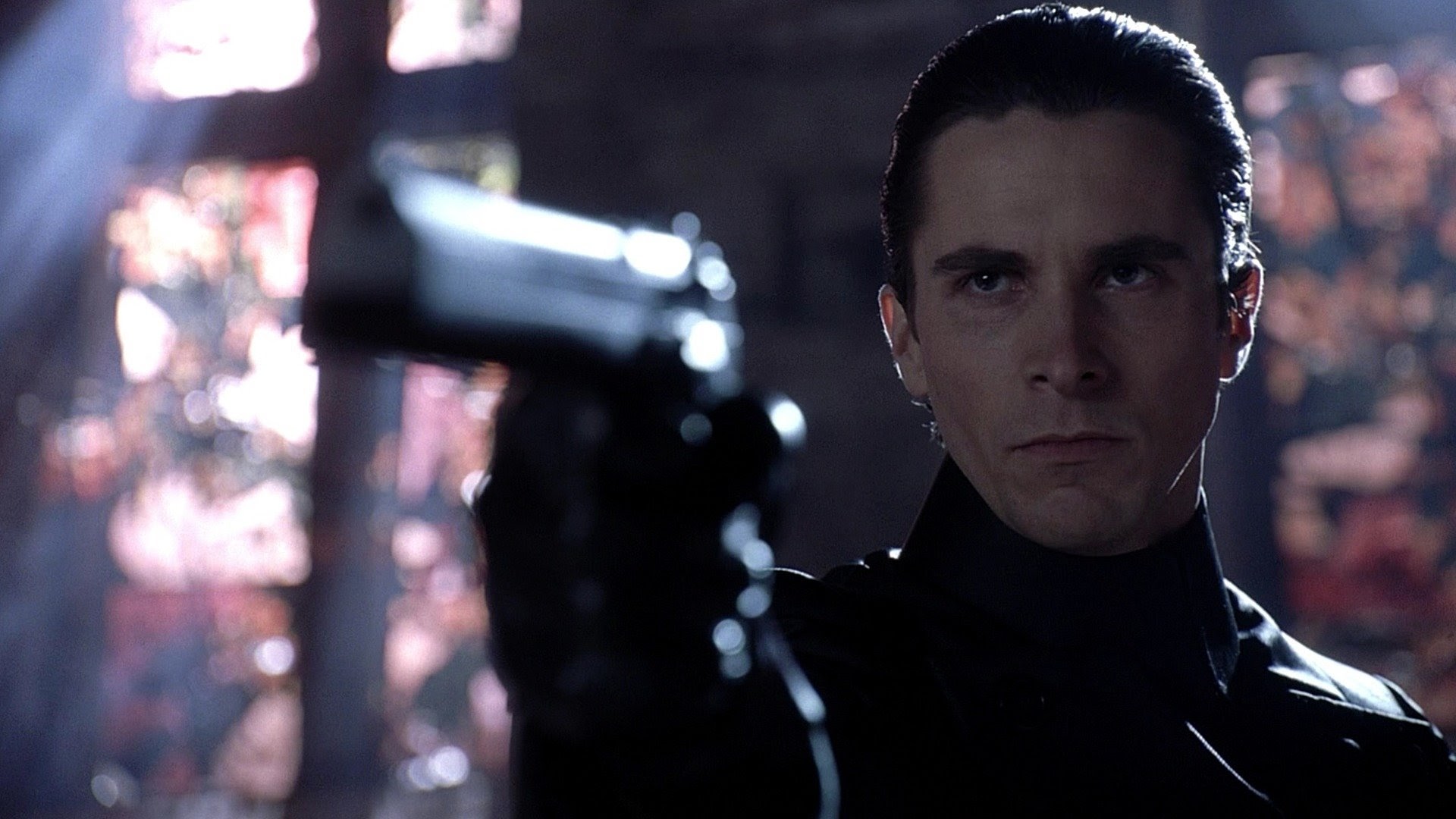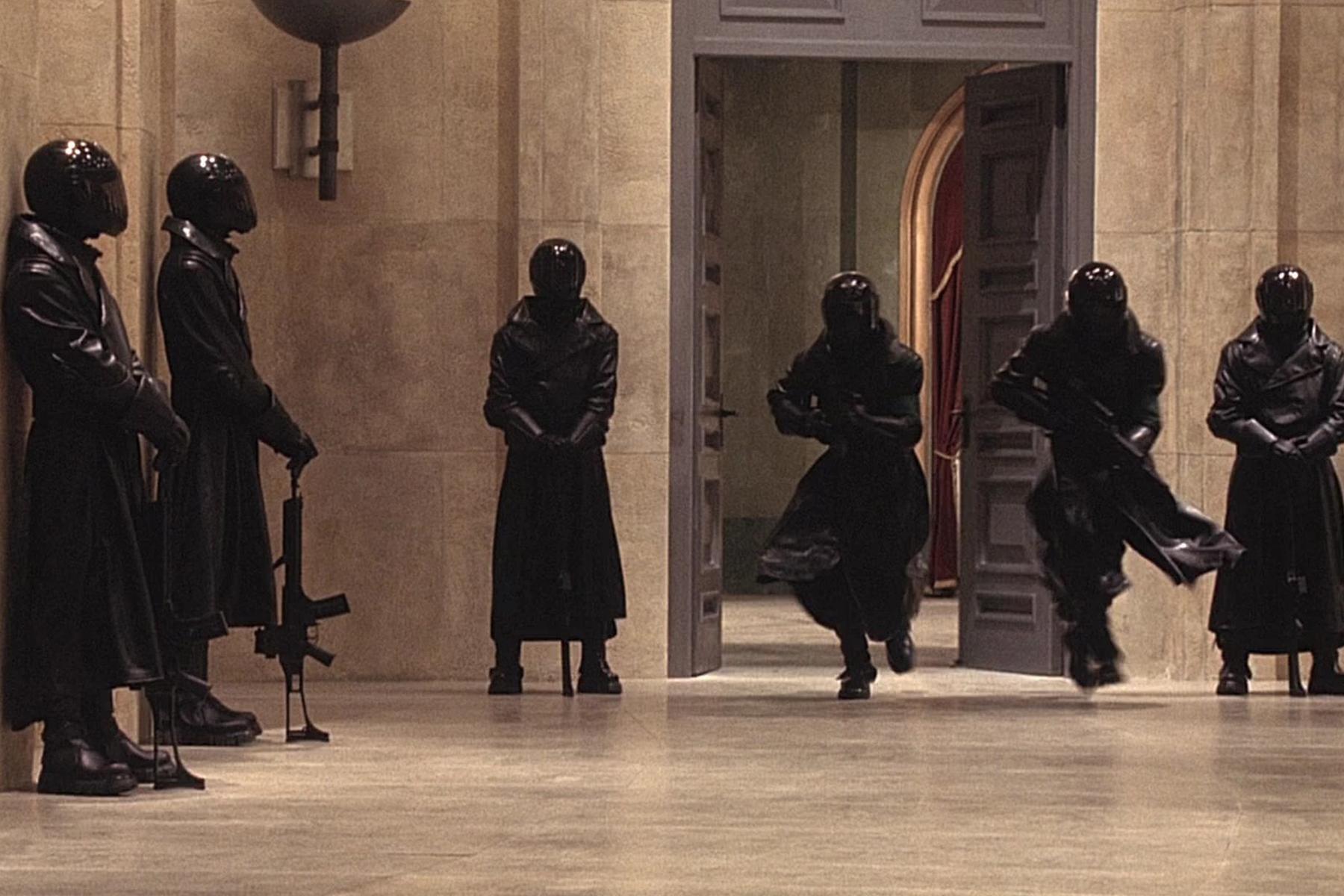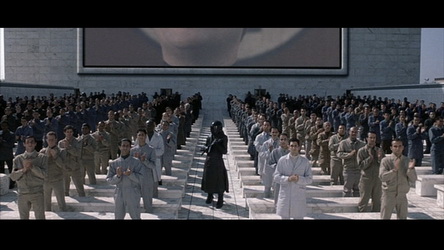Exploring Dystopian Realities and Ethical Quandaries in "Equilibrium": A Cinematic Analysis
Introduction:
Released in 2002, "Equilibrium" is a dystopian science fiction film directed by Kurt Wimmer, set in a totalitarian future society where emotions are suppressed, and artistic expression is outlawed. The film follows John Preston, a high-ranking government agent tasked with enforcing the regime's strict laws against feeling and creativity. As Preston begins to question the morality of his actions and experiences a resurgence of emotion, he becomes embroiled in a rebellion against the oppressive regime. This essay offers a comprehensive analysis of "Equilibrium," exploring its themes, characters, visual style, and the ethical dilemmas it presents.
Dystopian Setting and Themes:
"Equilibrium" is set in the fictional city-state of Libria, a sterile and oppressive society governed by the totalitarian regime of the Tetragrammaton Council. In this dystopian world, citizens are forced to take a daily dose of Prozium, a mind-altering drug that suppresses emotions and eliminates individuality. The regime's ultimate goal is to maintain "emotional equilibrium" by eradicating all forms of human passion and creativity, viewing them as the root causes of conflict and suffering.
Central to the film's narrative is the theme of freedom versus control, as the regime's iron-fisted rule stifles personal autonomy and enforces conformity at all costs. The suppression of emotions and the prohibition of art serve as metaphors for the dehumanizing effects of totalitarianism, highlighting the importance of individual expression and the inherent value of human emotions.
Character Analysis:
At the heart of "Equilibrium" is the character of John Preston, portrayed by Christian Bale, a skilled government enforcer who dutifully carries out his duties without question. Initially, Preston embodies the regime's ideology of emotional suppression, adhering rigidly to its laws and exhibiting a stoic demeanor devoid of sentiment.
However, as the narrative unfolds, Preston undergoes a profound transformation as he confronts the moral contradictions of his role and begins to experience repressed emotions. Bale's nuanced performance captures Preston's internal struggle, conveying a sense of inner turmoil and moral awakening as he grapples with the realization of his own humanity.
Opposing Preston is Vice-Counsel DuPont, played by Sean Bean, a high-ranking official within the regime who epitomizes its ruthless pursuit of control and order. DuPont serves as a foil to Preston, representing the embodiment of authoritarian power and ideological zealotry. Bean's portrayal infuses DuPont with a cold, calculating demeanor, highlighting the character's unwavering commitment to the regime's oppressive agenda.
Visual Style and Cinematography:
"Equilibrium" is renowned for its striking visual style and innovative cinematography, which combine to create a visually arresting depiction of the dystopian world of Libria. The film's use of color, or rather, its deliberate lack thereof, reinforces the regime's suppression of emotions and artistic expression. The predominant color palette of grayscale and muted tones reflects the bleakness and uniformity of life under totalitarian rule.
One of the film's most iconic visual motifs is the use of "Gun Kata," a fictional martial art characterized by fluid, choreographed gunplay. The action sequences featuring Gun Kata are meticulously choreographed and visually dynamic, adding a stylized element to the film's dystopian aesthetic. These sequences serve as a metaphor for the regimented violence of the regime, as well as Preston's gradual liberation from its constraints.
Ethical Dilemmas and Philosophical Questions:
"Equilibrium" raises a host of ethical dilemmas and philosophical questions that resonate with contemporary issues surrounding freedom, authority, and the nature of human existence. Central to these concerns is the tension between individual autonomy and state control, as the regime's quest for "emotional equilibrium" necessitates the sacrifice of personal freedom and expression.
The film also explores the ethics of obedience and dissent, as Preston grapples with his conscience and ultimately chooses to defy the regime's dictates in pursuit of a higher moral imperative. His journey raises profound questions about the nature of morality and the responsibility of individuals to resist unjust authority, even at great personal risk.
Furthermore, "Equilibrium" prompts reflection on the value of human emotions and creativity in shaping individual identity and fostering human connection. By portraying a society devoid of art, literature, and emotional expression, the film underscores the vital role of these elements in enriching the human experience and preserving the essence of what it means to be human.
Conclusion:
"Equilibrium" is a thought-provoking exploration of dystopian themes, ethical quandaries, and the enduring power of human resilience in the face of oppression. Through its compelling narrative, richly drawn characters, and striking visual style, the film invites viewers to contemplate the nature of freedom, the perils of authoritarianism, and the importance of individual agency in shaping the course of history.
As society grapples with pressing issues of political polarization, social conformity, and the erosion of civil liberties, the messages of "Equilibrium" remain as relevant and timely as ever. The film serves as a cautionary tale about the dangers of sacrificing personal freedom for the sake of security, and a reminder of the enduring human capacity for resistance and rebellion in the face of tyranny.
In conclusion, "Equilibrium" stands as a cinematic masterpiece that continues to captivate audiences with its compelling narrative, thought-provoking themes, and visually stunning imagery. It challenges viewers to confront uncomfortable truths about power, authority, and the human condition, while inspiring hope for a future where individual freedom and creativity prevail over oppression and conformity.













































